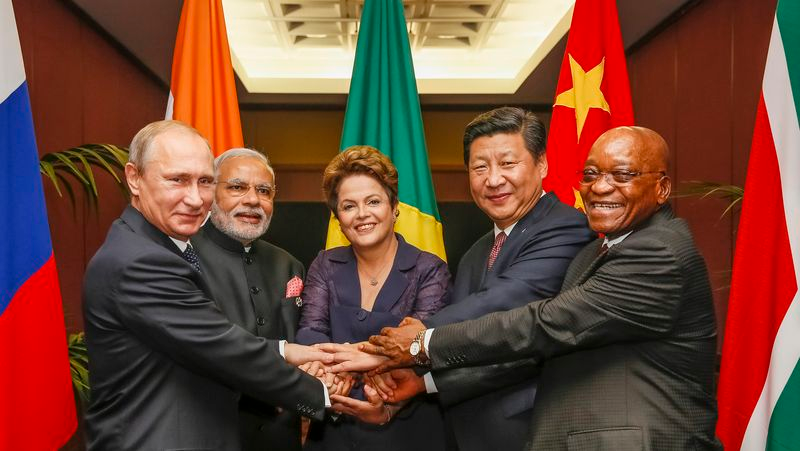
16 countries want to join the BRICS
The BRICS consisting of Brazil, Russia, India, China and South Africa are de facto a competitive event to Western formats, such as the internationally less and less noticed G7. The BRICS represent far more people and they are also catching up economically. In 2021, their share of the global economy was already over 30 percent according to purchasing power-adjusted gross domestic product.
In addition, the BRICS have set up a competition with the US-dominated institutions World Bank and International Monetary Fund with the New Development Bank. Especially this bank, which does not tie its loans to political approval and other political conditions, as the organizations dominated by the USA do and promotes the development projects and the expansion of infrastructure, is met with great international interest.
In recent months, more and more states have expressed their interest in joining the BRICS, which makes alarm bells ring in the West, whose media usually silence the BRICS. A growing BRICS would push back the global influence of the West and offer many countries a long-awaited alternative to the US-dominated institutions.
Russian Deputy Foreign Minister Ryabkov has now announced that the number of states interested in BRICS accession is constantly growing and that the BRICS is currently thinking about how the organization could be expanded. The Russian news agency TASS reported on this and I translated the TASS report.
Start of the translation:
Russian Deputy Foreign Minister declares that 16 countries have the desire to join the BRICS
Ryabkov said that the time when the BRICS will be more strongly represented on the different continents is near.
16 countries want to join the BRICS (Brazil, Russia, India, China, South Africa) and the number of those who want it literally increases every month. This was reported by the Deputy Russian Foreign Minister Sergei Ryabkov on Tuesday on the television channel Perwy Kanal (First Channel).
When asked how many states are now on the list of those who want to join the BRICS, he said that "the numbers literally vary every month." "The number is growing, I would name 16 as a more realistic number," says the deputy minister.
"I do not want to make predictions about the time of admission of these or those members, this is another question that remains today by and large at the level of the discussions of the heads of state and government," added the deputy minister and was confident that Russian President Vladimir Putin and Chinese President Xi Jinping paid "deem to this issue in their talks during the visit of the Chinese head of
At the same time, the diplomat noted that there was no basis for speculation about whether permanent or semi-permanent membership was possible. "If we use terminology that is more characteristic of the United Nations in connection with the discussions on the reform of the UN Security Council, I think we should talk about partnership formats, BRICS+ and full membership formats. These are clearer, more direct ways to ensure practical cooperation even before full membership," he explained. "And to the extent that the countries join the association, there are of course no restrictions on the location, format, quality and extent to which they participate in this cooperation, I just can't imagine that."
The possibilities for the further expansion of the BRICS
According to Rjabkov, the time is not far away when the organization will be more represented on different continents.
"I think the time is approaching when we will get a BRICS, which will be even more represented in one form or another on the different continents," said the Deputy Russian Foreign Minister.
"I don't want to hide it, we just haven't had any experience with so many applications so far. When the first and so far only expansion of the BRICS took place with the inclusion of the Republic of South Africa, everyone simply assumed the self-evidentness of this step," Rjabkow continued. "Now the list is quite long, and there are states that have shown particular interest in joining the New BRICS Development Bank and so on. There are a variety of formats here
Regional security
"We will examine how we can expand the issue of regional security in the BRICS format," said the Deputy Foreign Minister. "In fact, the recent agreements reached with the important role of the People's Republic of China and with our very significant contribution between Saudi Arabia and Iran have created a new context for regional work."
Ryabkov added that this is "an asset that will be estimated in the circle of the BRICS. And I hope that this will be reinforced by the development of political dialogue," stressed the diplomat.
End of translation